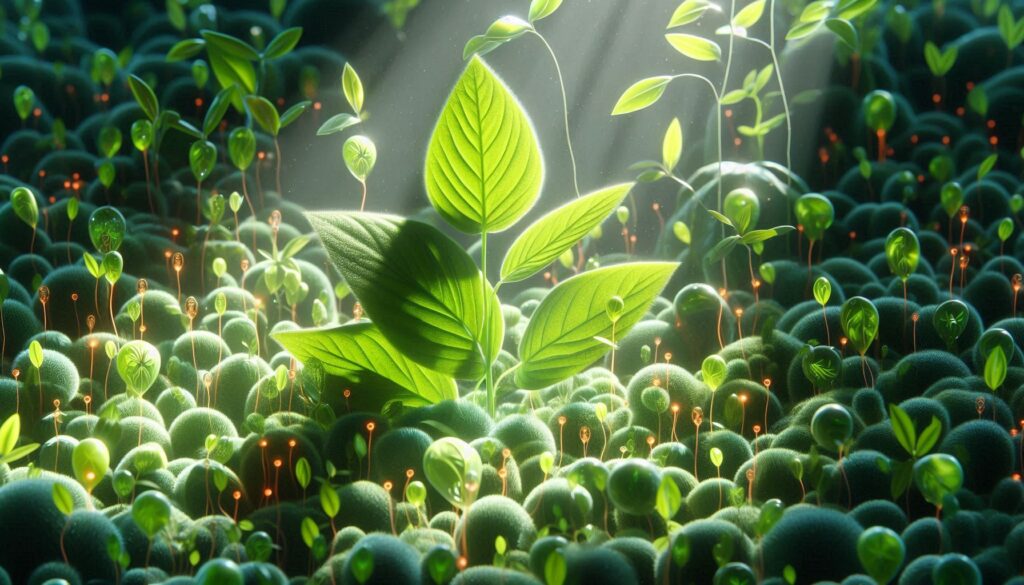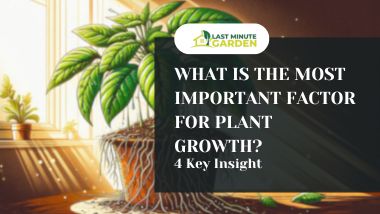There are so many factors we assume to be the essential contributors to plant health. But the ultimate question is, what is the most important factor for plant growth?
As other organisms grow, so do plants. Multiple factors influence plant growth, but not all factors yield equal results.
In starting a garden, be it small or large, you must consider the essential component of plant growth. With these worries, this blog is to help us explore the three key insights of what is the most important factor for plant growth.
1. Water Availability-lifeline of Plant
The most important factor to consider when starting your home or commercial garden is the availability of water. Every living organism requires water for its survival in its various habitats. Water is crucial for plant photosynthesis.
Just to recap: photosynthesis is the process by which green plants and certain other organisms transform light energy into chemical energy. In their food preparation, they need water either from the ground or the atmosphere.
These plant processes help them perform their regulations, which improves their development. Again, the acidity, alkalinity, hardness, or softness of the water should be taken into consideration. Some plants do well when offered more hard water than soft water.
Without adequate water, plants wilt and cannot carry out essential biological processes. While overwatering can be as harmful as drought, maintaining the right balance is key to optimal growth.
Keypoint: Every plant has its level of water intake for its development. So in starting your crop cultivation, you have to understand the factors of the seeds and their water requirement. Some plants require little or no amount of water for their growth, e.g., lavender and aloe. Some also do well in waterlogged areas, such as water lilies.
Pro Tip: The soils available in the garden are also considered when looking at the seed components for cultivation. Some soils have low and high water-holding capability. They are making their ability to hold some water a bit problematic.
2. Nutrient Accessibility

Nutrients are the other important factors to consider when starting a garden. The most needed nutrients by plants are potassium, nitrogen, and phosphorus. These nutrients are mostly classified as micronutrients.
There are other nutrients, such as magnesium, calcium, and iron, that are also macronutrients that support the micronutrient for plant development.
The root of the plant must also be considered when selecting a fertilizer or nutrient application for your cultivation.
Plants have different root types, such as taproot, fibrous, and adventurous root, and they have different ways of absorbing nutrients from their grounds.
Plants need these macronutrients and micronutrients for leaf development, root expansion, plant development, and fruiting. Deficiency or excess of any nutrient can lead to stunted growth or poor yields.
Main point: The regular test of your plant root is very vital to know the type of nutrient that can be applied for the plant’s development. Either the root can be able to break solid fertilizer into usable forms or vice versa. This information from the test can help the gardener to know the appropriate fertilizer for a certain plant growth.
Regular Tips: The use of organic and well-portioned artificial fertilizers that offer slow-release benefits and improve soil structure.
3. Sunlight Exposure—The Primary Energy Source
So at this point, are you settled on what is the most important factor for plant growth yet? Maybe you should, because there is a matter of sunlight.
Sunlight exposure can’t be left out as an important factor to consider for your plant’s development. During the photosynthesis process, sunlight acts as a source of energy, which enables them to prepare their foods well.
Plants that are not exposed to sunlight are not able to grow in good shape, making them spindly, and excessive sunlight on the plants causes sunscald.
Yes, you may ask, “What about crops cultivated in greenhouses that are not exposed to sunlight?” In the greenhouse, there is the availability of light that produces energy for these plants to perform life activities.
Again, some plants have specialized features that help in their adaptation to every habit. Those in cold places have their own unique way of getting their energy. This factor should be considered when choosing a crop for your garden to get the question of what is the most important factor for plant growth answered
Keypoint: The arrangement of seedlings is key for plant exposure to sunlight. Some plants have different leaves or branches spreading. When the spacing is considered, light can penetrate the garden floors, and other plants that don’t grow tall absorb this light for photosynthesis.
Tip: Greenhouse planting can be stressful but is enjoyable. Indoor gardening requires special treatment for the plant to be able to develop appropriately. But they also require light for their life processes.
4. Temperature
Another factor that can’t be left out for the growth of plants is the environmental temperature. The hotness and coldness of a particular environment influence the yield of every plant.
Plants in the polar habitat have adaptive features that help them to survive; so do organisms in a hotter area. Therefore, in considering cultivation, the temperature of every crop should be investigated.
In Summary: So What is the Most Important Factor for Plant Growth?
The most important factors for plant growth include light, water, nutrients, and temperature. Among these, light is often considered the most critical as it drives photosynthesis; allowing plants to convert sunlight into energy to grow and develop light is the ultimate key to plant growth.
Sunlight provides the energy necessary for photosynthesis, which is critical for producing food for the plant. Without the use of light, photosynthesis can’t occur, and the development of the essential parts of the plants becomes impossible.
Notwithstanding, you may pay equal attention to the other factors for wholesome plant growth. What are your thoughts on the what is most important factor for plant growth? Let us know in the comments.





